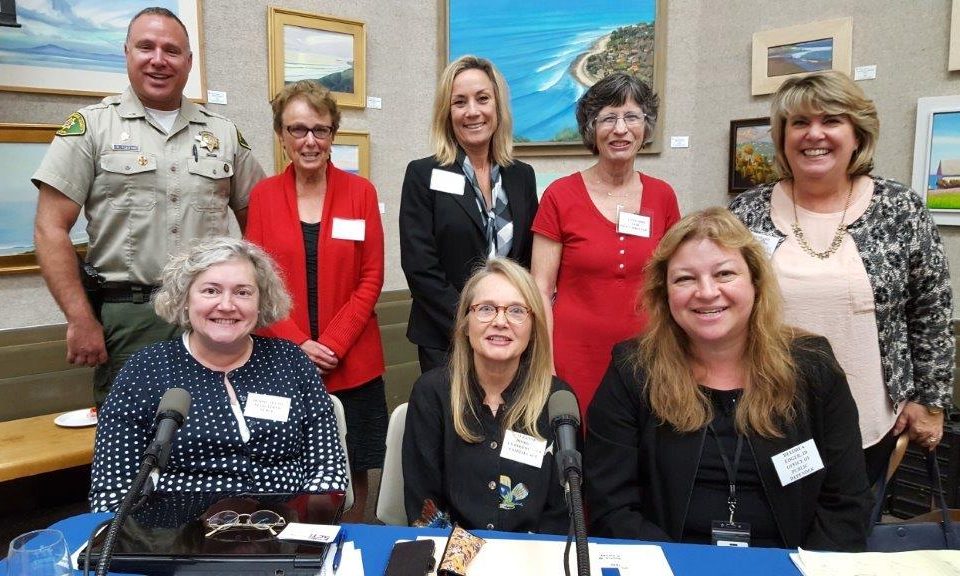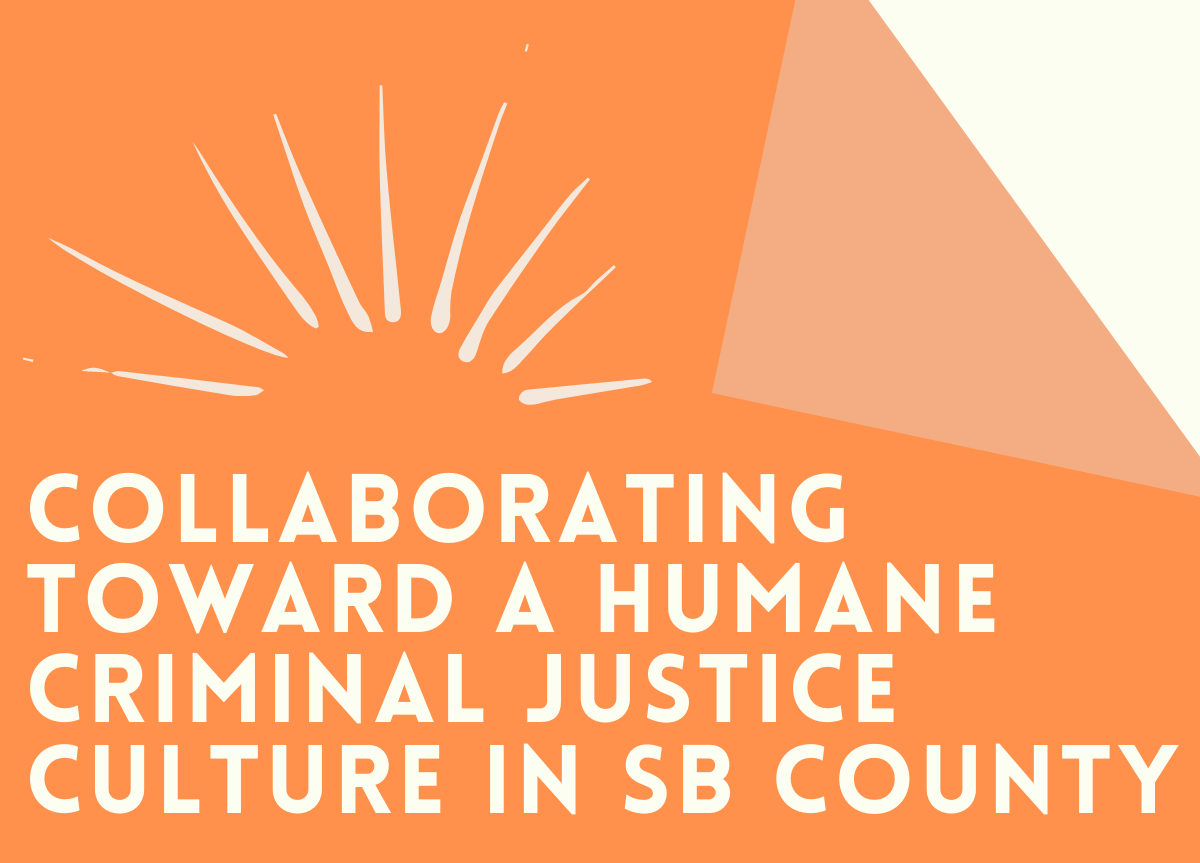The Criminal Justice Workgroup is collaborating in funding discussions to repurpose $1.3 million in the County Realignment Budget currently allocated for officers in Compliance Response Teams (CRT). In this transformational approach, CRTs would mentor probationers and parolees, helping connect them to community resources rather than return to jail.
We are aware of the urgency to address violent policing actions and conditions in jails. We support reducing incarceration, by shifting from funding punishment to investment in restorative alternatives. We advocate building a humane culture of respect and support for all those impacted by the SB criminal justice system. This may involve: funding to retrain officers for mentoring roles, increasing support services as alternatives for jail residents and those on probation, and engaging the community in reallocating funding for these changes. Our goal is a cultural shift to humane restorative practices and programs that will impact criminal justice to “build good neighbors,” reduce recidivism and reduce jail populations.
The former role of the County CRT’s has been primarily focused on punitive responses to non-compliance. If the probationers or parolees violated their probation, they would be taken to jail. The proposed new CRT mission involves retraining officers to respond to violations by building supportive relationships and facilitating options for services as alternatives to punishment. Jail would be a last resort.
The unique award winning Freedom to Choose transformation program in California prisons would facilitate the officer training. Our workgroup opposed funding the former CRT, when its mission was to arrest for non- compliance, a practice that did not match the intention of the realignment funding, to reduce ineffective and costly jail recidivism. We are collaborating in discussions regarding this new proposal, relative to other funding options. Results of this pilot CRT training and guided practice program would yield valuable insights regarding this new approach. Benefits of this new proposed program would be compared to other funding options.
There is clear evidence from Norway’s prison model that a restorative model can be successful. This model is now being applied in the United States through U.C. San Francisco Medical School’s AMEND program. Its interventions are creating cultural transformations in OR and CA prisons. Results of the proposed pilot CRT could impact expansion to other programs and new hire trainings in the Santa Barbara Sheriff and Probation Departments.
The Criminal Justice workgroup supports this new direction of the pilot CRT, promoting a more humane culture in our Santa Barbara Criminal justice system. We are open to other funding proposals that reflect this same mission.



